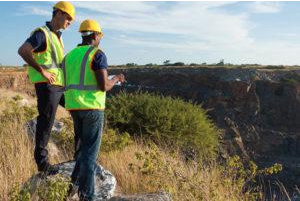
What Is a Phase I Environmental Assessment?
An initial stage in the environmental due diligence process, the Phase I ESA is performed to determine if current and historical site and surrounding area activities and uses have resulted in environmental impacts to the property being studied.
The Phase I ESA process involves a site and area reconnaissance, regulatory file and historical documentation review and interviews with persons having knowledge of the site to determine if environmental impacts to the site have or are likely to have occurred, resulting in recognized environmental conditions. The Phase I ESA does not generally involve sampling and analyses of soil, groundwater, air or building materials.
These studies are normally performed as part of a property transaction, including refinancing but are also performed for various other reasons, such as part of a brownfields redevelopment study for grants, liability determination/protection and tax incentives.
Why Is Phase I Environmental Assessment Important?
Conducting a Phase I site assessment before completing a transaction for commercial property is an essential component of the due diligence process for several reasons.
Identifies Past Usage
As businesses come and go, a commercially zoned property can change hands several times. A Phase I ESA can identify the past uses that could have impacted the site over many years and the potential environmental ramification. For example, if the site previously served as a gas station or dry cleaner, the contamination risk is higher than if it were a retail shop or accounting firm.
Reduces Risk Exposure
Though the intended use for the property may not present any environmental risks, it is possible that previous owners engaged in activities that caused contamination. The assessment can identify these issues and the appropriate remediation steps before moving on to a Phase II assessment.
Meeting the Lender’s Requirements
Although a Phase I ESA may not be necessary with every commercial real estate transaction, lenders may require one before processing a loan. They request this step in an effort to find hidden contamination that could impact the value of the property, as this could affect the buyer’s ability to repay the loan.
Furthermore, if the lender needs to foreclose, it can be challenging to sell a contaminated property. Even after removing the contamination, it can take years to obtain a closure letter that indicates the property is not environmentally dangerous.
Buyer Protection
If a Phase I assessment discovers contamination, the seller can perform the necessary remediation steps under the oversight of the appropriate regulatory body. The purchaser can then conduct a Phase II site assessment to establish the remediation costs and use this information to negotiate a lower price. Conducting this due diligence can also relieve the buyer of potential environmental liability.

When to Use Phase I Buyer Assessment Services
A Phase I site assessment is typically appropriate in these situations:
- Buying and selling virtually any type of commercial property, including hotels, shopping malls, warehouses, garages, gas stations and farmland
- Commercial property transactions involving a bank loan for the reasons listed in the previous section
- Transactions involving commercial or industrial properties that utilize — or have utilized in the past — regulated hazardous materials., including lumber treatment, dry cleaning or metal finishing techniques like electroplating
- Sales transactions involving properties adjacent to commercial or industrial operations
- Land sales arrangements that include properties used for oil or gas exploration purposes
- The sale of land with previously known environmental liens
In general, it is prudent to use the services of Phase I environmental companies whenever there are questions or doubts about the existence of contamination that could present ecological issues. A professionally conducted assessment is much less expensive than paying for site remediation. The process also provides more insight into the property, enabling protective buyers to make more informed decisions.
This process is also fast — it is possible to complete a comprehensive assessment in a month or less, which should not hinder a typical commercial real estate process that often takes much longer.
Work With Hope Consulting for Phase I Environmental Assessment
At Hope Consulting, we help our construction clients make their projects go more smoothly by providing high-quality consulting services. We focus on geotechnical data and how it affects building, evaluations, compliance and environmental management.
We can deliver expert Phase I environmental assessment services that provide valuable insight into the existence of contamination from current or previous site owners that could impact a sales transaction. You can move forward with confidence and more peace of mind.
Hope Consulting can also help you with specific Phase I ESA scopes such as Fannie Mae or Housing and Urban Development (HUD).